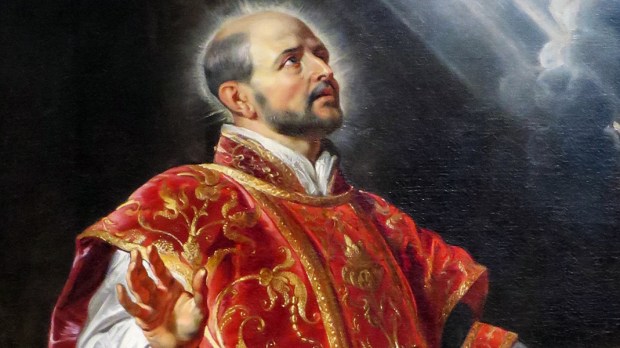Lenten Campaign 2025
This content is free of charge, as are all our articles.
Support us with a donation that is tax-deductible and enable us to continue to reach millions of readers.
Prayer, all great saints and mystics remind us, is the lifeblood of the Catholic soul. But the path of prayer can sometimes feel dry, difficult, even elusive. Our minds race, words become hollow, and the sense of communion we yearn for seems to falter. This is where the often-overlooked faculty of imagination becomes a vital force, opening unexpected depths within our spiritual practice.
The great saints of our tradition understood the power of the imagination. St. Teresa of Ávila, the great Doctor of the Church, famously termed the imagination la loca de la casa – “the crazy woman of the house.” She recognized its tendency to spin distracting tales, yet also acknowledged its potential to guide us toward deeper prayer.
However, it was St. Ignatius of Loyola, founder of the Jesuits, who truly codified the use of imagination in his “composición de lugar” – an expression that could be literally translated as “composition of place,” but which also implies “placing oneself within the scene.” Ignatius understood the power of the imagination to bridge the divide between thought and feeling, transforming prayer into a heart-centered encounter with God.
Here’s how
Here’s how Ignatian prayer with imagination (some call it “imaginative contemplation”) works:
1. Choose a Scripture Passage: Select a scene rich in detail, like Jesus calming the storm (Mark 4:35-41) or the Last Supper (John 13:1-17).
2. Engage Your Senses: This is where imagination plays the major role. The one praying is supposed to imagine the sights: the rolling waves, the room where Jesus shared his final meal. Ignatius recommends “hearing” the sounds: the howling wind, the murmur of disciples. You can even “feel” the spray of the storm, or the warmth of the room.
3. Become a Participant: Ignatius recommends not just observing the scene but entering it. Stand beside the disciples in the boat or sit with Peter at the Last Supper. Once here, one can interact with Jesus or any of the other apostles or people in the room.
4. Reflect and Respond: Now, this is not just a matter of playing with one’s imagination. After dwelling in the scene, one is called to reflect on the emotions it evokes. What do Jesus’ actions teach you? How does his presence affect you? It is, if you will, an imaginative version of the classic Lectio Divina. The response to this exercise is usually a heartfelt, spontaneous prayer: a conversation sparked by your imaginative experience.
What will happen
In short, Ignatius’ composición de lugar allows us to:
1.Personalize Scripture: By placing ourselves in the stories, we connect with the characters and teachings on a deeper level. Reading becomes a “lived” experience.
2.Encounter Jesus: Using our imagination, we move beyond abstract concepts and experience and foster a more intimate relationship with God.
3.Engage Our Emotions: Imagination taps into our feelings, making prayer more meaningful and impactful.
So next time you pray, consider inviting your imagination to the table rather than trying to “control” it. Let it paint a vivid picture, allowing you to enter the narrative and encounter the divine in a transformative way. Remember, prayer isn’t just about words; it’s about building your relationship with God. Imagination can be a powerful bridge to get us there.



